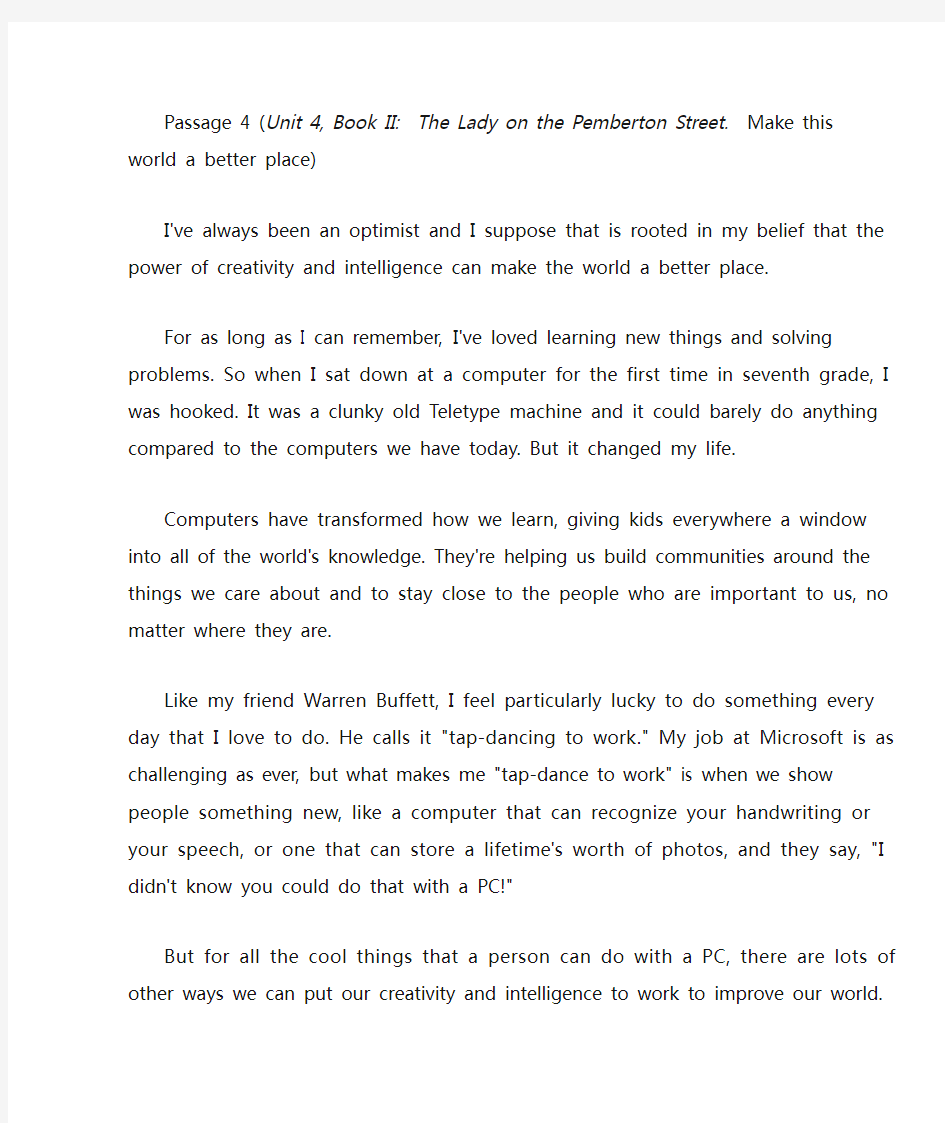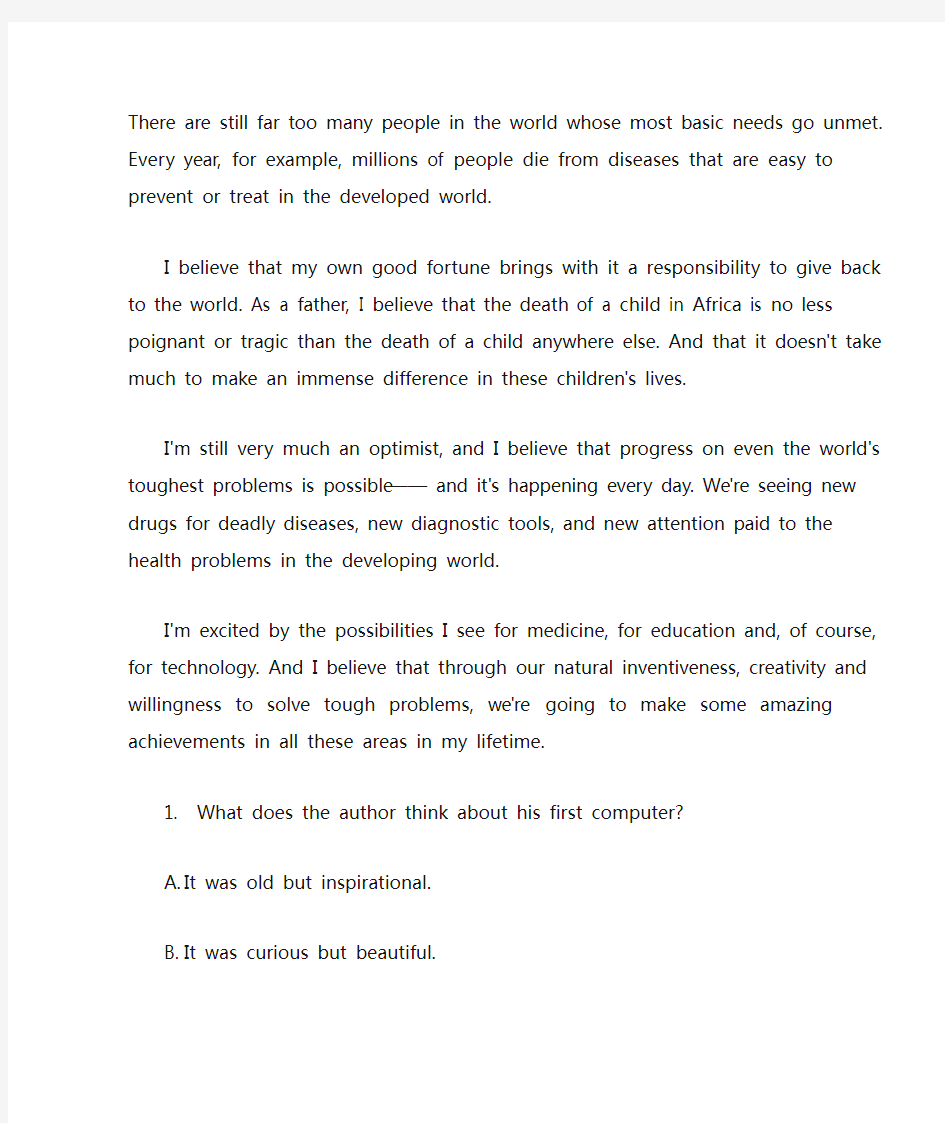

Passage 4 (Unit 4, Book II:The Lady on the Pemberton Street.Make this world a better place) I've always been an optimist and I suppose that is rooted in my belief that the power of creativity and intelligence can make the world a better place.
For as long as I can remember, I've loved learning new things and solving problems. So when I sat down at a computer for the first time in seventh grade, I was hooked. It was a clunky old Teletype machine and it could barely do anything compared to the computers we have today. But it changed my life.
Computers have transformed how we learn, giving kids everywhere a window into all of the world's knowledge. They're helping us build communities around the things we care about and to stay close to the people who are important to us, no matter where they are.
Like my friend Warren Buffett, I feel particularly lucky to do something every day that I love to do. He calls it "tap-dancing to work." My job at Microsoft is as challenging as ever, but what makes me "tap-dance to work" is when we show people something new, like a computer that can recognize your handwriting or your speech, or one that can store a lifetime's worth of photos, and they say, "I didn't know you could do that with a PC!"
But for all the cool things that a person can do with a PC, there are lots of other ways we can put our creativity and intelligence to work to improve our world. There are still far too many people in the world whose most basic needs go unmet. Every year, for example, millions of people die from diseases that are easy to prevent or treat in the developed world.
I believe that my own good fortune brings with it a responsibility to give back to the world. As a father, I believe that the death of a child in Africa is no less poignant or tragic than the death of a child anywhere else. And that it doesn't take much to make an immense difference in these children's lives.
I'm still very much an optimist, and I believe that progress on even the world's toughest problems is possible ——and it's happening every day. We're seeing new drugs for deadly diseases, new diagnostic tools, and new attention paid to the health problems in the developing world.
I'm excited by the possibilities I see for medicine, for education and, of course, for technology. And I believe that through our natural inventiveness, creativity and willingness to solve tough problems, we're going to make some amazing achievements in all these areas in my lifetime.
1. What does the author think about his first computer?
A.It was old but inspirational.
B.It was curious but beautiful.
C.It was the most practical tool he had ever used.
D.It was the source of his knowledge and power.
2. By calling it “tap-dancing to work”, Warren Buffett thinks the author’s job is __________.
A. a great challenge to brain power
B. significant in the development of technology
C. enjoyable in spite of any possible hardships
D. a window through which people are shown a new world
3. According to the author, a PC is __________.
A. a luxury that only few people are able to possess
B. a tool to enhance our creativity and intelligence
C. a necessity for life that we can’t do without
D. a way to make the world a better place
4. How does the author most probably look at the African children?
A. Much effort has to be made to change their life.
B. He takes it his responsibility to change their life.
C. Their sufferings deserve more worldwide concern.
D. Their sufferings are resulted from shortage of fund.
5. By this passage, the author mainly wants to highlight __________.
A. the magic power of computers
B. the importance of an optimistic outlook
C. the power of creativity and intelligence
D. the influence of technological development